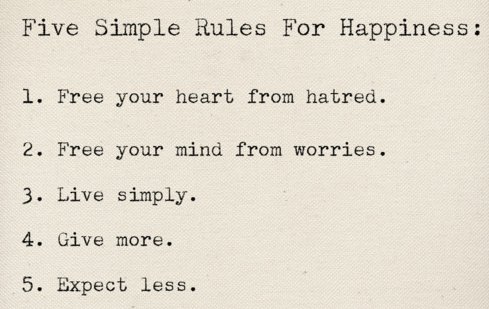Source Google.com.pk
happiness is an umbrella term for the various philosophical approaches to explaining the nature of happiness, as well as how to attain it. Both the classic Western philosophy (Ancient philosophy) and the Eastern philosophy since its inception deal with the subject of happiness.
Socrates (* 469 BC in Athens, † 399 BC) is fundamental in Western thinking. Almost all the major philosophical schools of antiquity have to rely on Socrates. Michel de Montaigne called him the "master of masters" and Karl Jaspers wrote, "Socrates to have in mind is one of the essential conditions of our philosophy".
Socrates is widely regarded as the spiritual father of today's scientific thought. He was an advocate of reason and was highly involved with deciphering truth. What is true and what is wrong? What is the way of a true life? Socrates had no ready answers. He left it to each of his students to find their own truth. Three things he gave them along the way: 1. Keep interested in the truth. 2. Make sure that your soul is as good as possible. 3. To get a good soul, maintain the four virtues of prudence, temperance, courage and justice (charity).[2]
Perhaps the first philosopher who has developed a complete philosophy of happiness was Aristippus. He was a student of Socrates, but adopted a very different philosophical outlook, teaching that the goal of life was to seek external pleasure. Aristippus lived luxuriously. He is considered the founder of hedonism.
Antisthenes (c. 445 BCE – c. 365 BCE) was also a student of Socrates. He adopted and developed the ethical side of Socrates' teachings, advocating an ascetic life lived in accordance with virtue. Later writers regarded him as the founder of Cynic philosophy. His most important disciple was Diogenes, who lived after a legend in a barrel. The way of happiness of Antisthenes is similar to the Enlightenment philosophy of Buddhism, Indian Yoga and Chinese Taoism. Through a life of peace, simplicity, naturalness, modesty and virtue (mental work) dissolve the inner tensions. Inner happiness and enlightenment appear. We find Antisthenes praising the pleasures which spring "from out of one's soul."[3]
Plato lived from 428/427 BC to 348/347 BC in Athens. He was a student of Socrates, writer of philosophical dialogues, and founder of the Academy in Athens, the first institution of higher learning in the Western world. According to Plato, the human soul consists of three parts: the reason, the will and the desire. A man is happy when all three parts of the soul are in balance.
Plato thought about how to build a good society. He proposed to transfer the leadership of a society to the wise. One could say that science (the philosophy of happiness) should be the center of happy society.
For Epicurus, the purpose of philosophy was to attain a happy, tranquil life, characterized by peace, freedom from fear, the absence of pain, and by living a self-sufficient life surrounded by friends. A life after Epicurus (341-270 BC) is happy when you live everything in the right degree. Everyone should know his point of enough. "Nothing is enough for the man to whom enough is too little."[4]
Epicureans are often confused with hedonists. Both are completely different philosophical paths. An Epicurean embodies a moderate path of asceticism and a hedonist a path of extreme external pleasure.[5]
Epicurus taught positive thinking. A life will be happy when we constantly train positive thinking. Epicurus called it "philosophize." A person should philosophize every day. One should think about the meaning of life and reflect again and again to his positive goals.
The inner happiness comes from inner peace. When a person calms down, inner happiness appears. Epicurus recommended it to live in inner peace, "Then you live like a God among your unwise fellow men,"[6] which an Epicurean also helps on the way: "The friendship dances around the globe, all of us announcing that we shall awaken to bliss."
Aristotle, a student of Plato, held eudaimonia, frequently translated as happiness, to be the ultimate aim of human thought and action. The reasoning behind this in his Nicomachean Ethics is that all other things which are held to be valuable, such as wealth, intelligence, and courage, are valued only in relation to other things, rather than being valued on their own, and that happiness is the only thing valuable in isolation. The common translation of eudaimonia as happiness has been greatly contested, with alternatives such as welfare or human flourishing being proposed. The word's components are "eu" meaning well, and "daimon" meaning spirit or divinity, though Aristotle does not explicitly concern himself with the etymology.[8]
Although there is a superficial similarity between Aristotelian and Epicurean thought in that they both value happiness above all else, they differ enormously in what they conceive to be happiness. Aristotle held virtue to be necessary for a person to be happy, and that without virtue the most that may be attained is contentment, while for Epicurus happiness was merely rational hedonism. Aristotle has been criticized for failing to show that virtue is necessary in the way he claims it to be, and he does not address the moral skepticism Plato does in his Republic through the character of Thrasymachus.
Sonja Lyubomirsky is one of America's happiness researchers. She is a professor and wrote the international bestseller The How of Happiness.[23] She wondered what one can do if one wants to get a happy life. She accepted that, after the current state of research about 50% of a given human's happiness level is genetically determined. About 10% of happiness is affected by external living conditions, but 40% of happiness can be influenced by the mind of a person.
According to Lyubomirsky, the secret of lasting happiness is to turn our attention mainly to that 40% and constantly maintain our inner happiness. We should exercise regularly, avoid negative thoughts and encourage positive thoughts, maintain our social relationships and have a positive task in our lives. Many studies demonstrate the positive effects of meditation on our happiness, "Meditate every day. Begin with five minutes and increase to up to 20 minutes a day."[24]
Sonja Lyubomirsky developed a twelve-point program for personal happiness. The main point for her is gratitude. We should focus on the positives in our lives and be grateful. We should live according to principles such as optimism, joy, helpfulness, forgiveness, good social relationships, good health care and a positive task if we want to achieve a happy and fulfilling life.[25]
A happy society
Richard Layard (born 15 March 1934) is a British economist. He was founder-director in 1990 of the Centre for Economic Performance at the London School of Economics. He argues that people in the West could live happier lives, if instead of focusing on the growth of the outer wealth, they concentrated on the growth of inner happiness. At the moment the unbridled selfishness destroys the growth of general happiness. People in the West need a new philosophy on the basis of the happiness research. The goal should be the greatest happiness of all.[26]
Layard stated, "Although the people in the West have for decades got richer, they have not become happier. (...) Studies show that people are not happier today than 50 years ago. And this is despite the fact that the real median income in this period has more than doubled."[27] On the contrary, people are getting richer externally, and internally unhappier. The likelihood of suffering from a clinical depression is now ten times as large as a century ago.[28]
Bhutan is a small landlocked country in South Asia, located at the eastern end of the Himalayas and bordered to the south, east and west by the Republic of India and to the north by the People's Republic of China. Gross national happiness (GNH) is a concept introduced by the King of Bhutan in 1972 as an alternative to the Gross domestic product. Although the GNH framework reflects its Buddhist origins, it is based upon the empirical research of happiness, positive psychology and wellbeing. The philosophy of happiness of Bhutan rests on four pillars: a healthy environment, a good economy, a democratic government and the anchoring in a positive religion/culture.
Quotes On Happiness
Sad Quotes About Love That Make Your Cry and Pain Tumblr For Girls that make you cry for girls for Him for Boys That Hurts Tagalog and Pain Tumblr
Quotes On Happiness
Sad Quotes About Love That Make Your Cry and Pain Tumblr For Girls that make you cry for girls for Him for Boys That Hurts Tagalog and Pain Tumblr
Quotes On Happiness
Sad Quotes About Love That Make Your Cry and Pain Tumblr For Girls that make you cry for girls for Him for Boys That Hurts Tagalog and Pain Tumblr
Quotes On Happiness
Sad Quotes About Love That Make Your Cry and Pain Tumblr For Girls that make you cry for girls for Him for Boys That Hurts Tagalog and Pain Tumblr
Quotes On Happiness
Sad Quotes About Love That Make Your Cry and Pain Tumblr For Girls that make you cry for girls for Him for Boys That Hurts Tagalog and Pain Tumblr
Quotes On Happiness
Sad Quotes About Love That Make Your Cry and Pain Tumblr For Girls that make you cry for girls for Him for Boys That Hurts Tagalog and Pain Tumblr
Quotes On Happiness
Sad Quotes About Love That Make Your Cry and Pain Tumblr For Girls that make you cry for girls for Him for Boys That Hurts Tagalog and Pain Tumblr
Quotes On Happiness
Sad Quotes About Love That Make Your Cry and Pain Tumblr For Girls that make you cry for girls for Him for Boys That Hurts Tagalog and Pain Tumblr
Quotes On Happiness
Sad Quotes About Love That Make Your Cry and Pain Tumblr For Girls that make you cry for girls for Him for Boys That Hurts Tagalog and Pain Tumblr
Quotes On Happiness
Sad Quotes About Love That Make Your Cry and Pain Tumblr For Girls that make you cry for girls for Him for Boys That Hurts Tagalog and Pain Tumblr
Quotes On Happiness
Sad Quotes About Love That Make Your Cry and Pain Tumblr For Girls that make you cry for girls for Him for Boys That Hurts Tagalog and Pain Tumblr










No comments:
Post a Comment